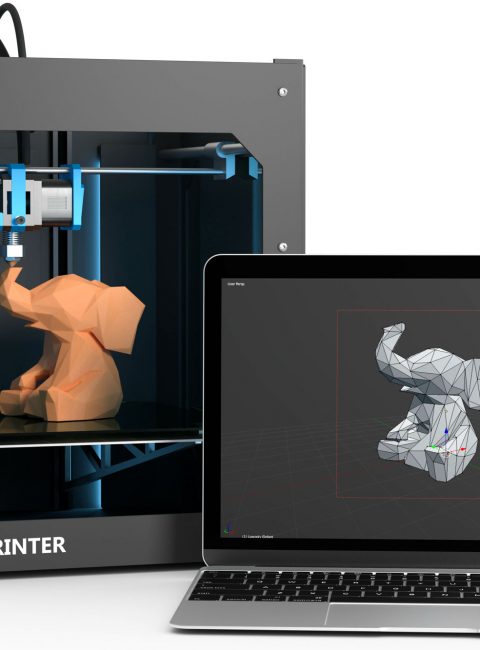 >
Spotlight November 2023: Early Awareness and Action System for Advanced Materials (Early4AdMa)
>
Spotlight November 2023: Early Awareness and Action System for Advanced Materials (Early4AdMa)
Advanced materials hold immense potential to address global challenges such as environmental degradation, transformation of the energy sector, and development towards circularity. To harness their benefits while ensuring safety and sustainability, regulatory bodies, scientific communities, and industries have recognized the need for proactive approaches. The “Early4AdMa” system is a pre-regulatory risk governance tool for advanced materials, aimed at identifying potential safety, sustainability, and regulatory issues thus promoting informed decision-making and responsible innovation.
The recent report published by the OECD emphasizes the importance of interdisciplinary collaboration and the need to assess materials safety throughout their life cycle. The system’s potential impact and the role of the Safe-and-Sustainable-by-Design concept in material innovation are also discussed.
„Early4AdMa” consists of two tiers: Tier 1 is an optional broad screening assessment that examines advanced materials for potential issues using the NESSI approach (Novelty, Exposure, Severity, Scope, and Immediacy), sustainability, and regulatory considerations. Tier 2, on the other hand, involves a detailed assessment of selected materials for safety, sustainability, and regulatory issues. The system’s development focus is primarily on Tier 2, which is considered more comprehensive and ready-to-use.
The primary objectives of Early4AdMa include:
1. Identifying potential issues related to human health, environment, sustainability, and regulation associated with advanced materials.
2. Supporting regulatory preparedness for governing advanced materials.
3. Facilitating innovation by providing early insights into potential challenges.
4. Promoting the safe and sustainable development of advanced materials.
Early4AdMa is intended for use by regulatory decision-makers, policy-makers, and risk assessors. The system acknowledges that advanced materials can undergo transformations throughout their life cycle. Experts are tasked with identifying potential transformation forms and associated exposure hotspots, even though this can be challenging, especially in early market stages. Recognizing data limitations, the system employs conservative assessments, aiming to identify potential issues and information gaps rather than delivering definitive conclusions. Experts are encouraged to use “unknown” when unsure, with the importance of explaining assumptions. While initially focused on materials with nanocomponents, Early4AdMa adapts to advanced materials without nano-components as the field progresses. Early identification of potential human health, environmental, and sustainability risks can facilitate the innovation process, helping to circumvent regulatory uncertainties and innovation barriers.
The Early4AdMa system represents a critical advancement in the proactive management of advanced materials. Its two-tiered approach, interdisciplinary collaboration, and emphasis on life cycle considerations demonstrate its commitment to addressing safety, sustainability, and regulatory concerns. The system holds promise in ensuring that advanced materials are harnessed for their full potential while safeguarding human health and the environment. Moreover, the adoption of the Safe-and-Sustainable-by-Design concept further reinforces responsible innovation in the field of advanced materials.
Original publication:
OECD (2023), Early Awareness and Action System for Advanced Materials (Early4AdMa): Pre-regulatory and anticipatory risk governance tool to Advanced Materials, OECD Series on the Safety of Manufactured Nanomaterials, No. 108, Environment, Health and Safety, Environment Directorate, OECD.
More information:
• European Green Deal: https://en.wikipedia.org/wiki/European_Green_Deal
• Chemicals Strategy for Sustainability: https://echa.europa.eu/hot-topics/chemicals-strategy-for-sustainability
• European Advanced Materials 2030 Initiative : https://www.ami2030.eu

Weitere Spotlights
Spotlight June 2023: New catalytic process for recovering important materials from composites in a single process
Previously virtually impossible and a huge problem: fibre-reinforced resin composites (epoxides) were not recyclable, and wind turbine rotor blades, for example, add up to a waste pile of 43 million tons by 2050. Researchers have now taken an important first step in “reprocessing” these composites and catalytically dissolving them so that the carbon fibres and […]
Read moreSpotlight May 2023: Dual energy – edible batteries
An Italian research group reports on edible batteries that supply electric current and can be digested as food, thus providing energy a second time. What sounds funny at first has a serious background, because in medicine, power sources are needed that could be transported through the digestive tract and possibly remain in the body unintentionally, […]
Read moreSpotlight April 2023: Recycling rare earths – bacteria assist in the circular economy
Rare earths are important components of wind turbines, catalytic converters, fibre optic cables and plasma screens. Since the 17 metals grouped under this term are indispensable for modern technologies, demand and costs are constantly rising. The occurrence of productive mining sites is limited and the production is often costly and environmentally harmful. The advantages of […]
Read moreSpotlight July 2022: New definition on nanomaterials published
The European Union has published a new definition for nanomaterials as of June 2022. It is recommended that this be used as a basis for future legislation. The new documents can be found on the EC website. In the new “nanodefinition”, the essential components such as the origin or the size range of the particles […]
Read more


